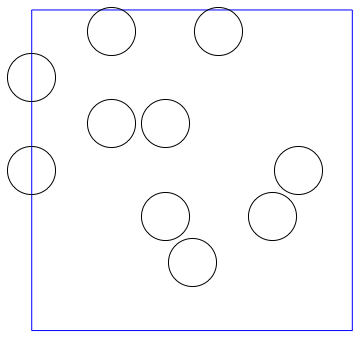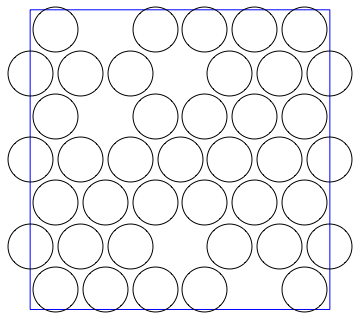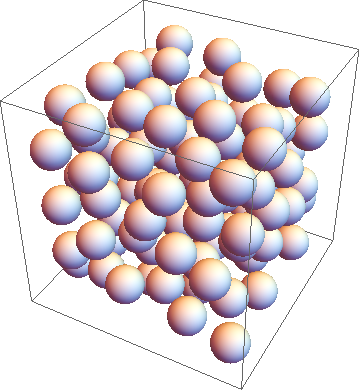And now for something completely different. @novice did not ask that the circles be placed randomly, rather that the circles be distributed "uniformly". You can get more circles in if they are not placed randomly. This hexagonally packs in as many circles as possible of radius r, and then removes any excess circles randomly:
distinctx[n_,r_]:=Module[{x,c},
x={
2Floor[1/(2r)+1/2]-1,
2Floor[1/(2r)],
Sqrt[3](2Floor[1/(2Sqrt[3]r)+1/2]-1),
2Sqrt[3]Floor[1/(2Sqrt[3]r)]}//
Min[1/Select[#,#>0&]]&;
c=Join[
Table[Circle[x{2 i+1,Sqrt[3]j},r],
{i,-Floor[1/(2x)+1/2],Floor[1/(2x)-1/2]},
{j,-1-2Floor[1/(2Sqrt[3]x)-1/2],1+2Floor[1/(2Sqrt[3]x)-1/2],2}]
//Flatten,
Table[Circle[x{2 i,Sqrt[3]j},r],
{i,-Floor[1/(2x)],Floor[1/(2x)]},
{j,-2Floor[1/(2Sqrt[3]x)],2Floor[1/(2Sqrt[3]x)],2}]
//Flatten];
If[Length[c]>n,RandomSample[c,n],c]
]
For example:
distinctx[10,0.15]//
Graphics[{Blue,Line[{{-1,-1},{-1,1},{1,1},{1,-1},{-1,-1}}],Black,#}]&

distinctx[40,0.15]//
Graphics[{Blue,Line[{{-1,-1},{-1,1},{1,1},{1,-1},{-1,-1}}],Black,#}]&

You're very unlikely to be able to get 40 circles of radius 0.15 stuffed in there randomly.

